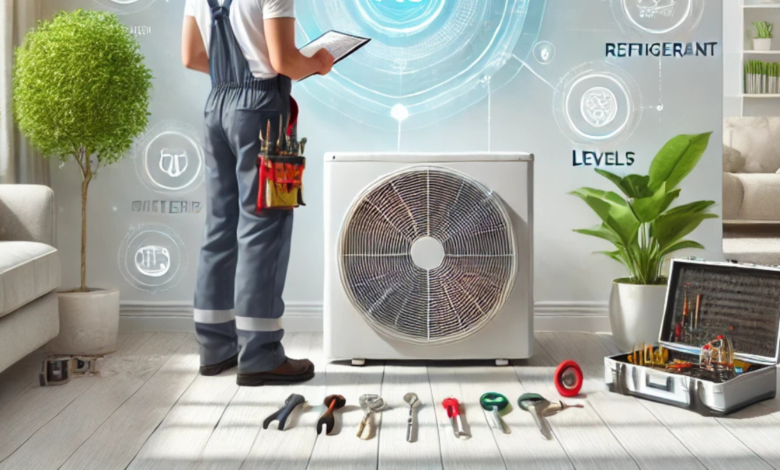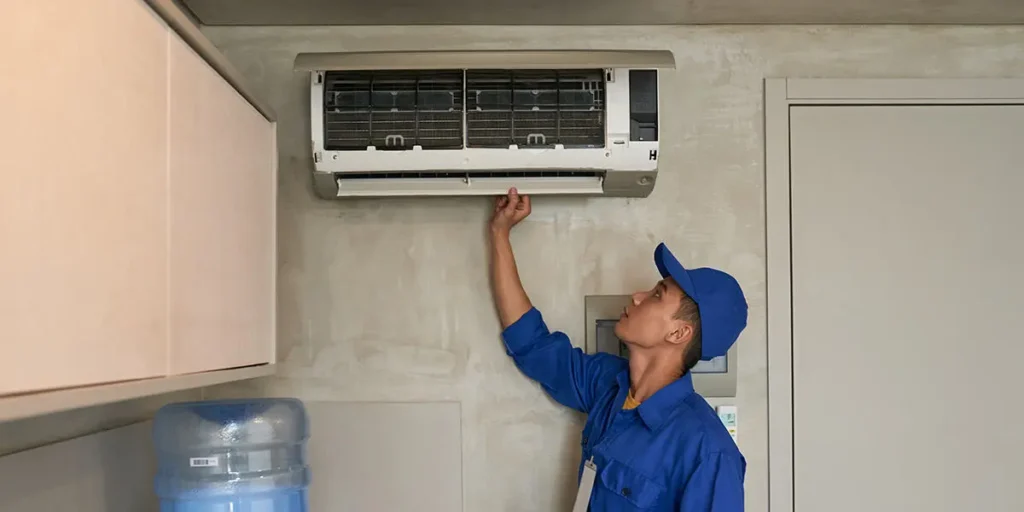Breaking AC Problems Explained: Is It Time to Call a Professional?

Air conditioning (AC) systems are essential for maintaining a comfortable indoor environment, especially during hot summer. However, many homeowners need help determining whether to call a professional when issues arise. This comprehensive guide will dive into breaking AC problems, explain their causes, and explain the signs indicating you need expert help.
Common AC Problems and Their Causes
Inadequate Cooling
One of the most frequent concerns is when an AC fails to cool a space effectively. This issue can result from:
- Dirty or clogged air filters block airflow.
- Low refrigerant levels due to leaks.
- A malfunctioning compressor or thermostat.
- An undersized unit is unable to meet the room’s cooling requirements.
AC Not Turning On
When your air conditioner doesn’t power on, potential causes include:
- A tripped circuit breaker or blown fuse.
- Incorrect thermostat settings.
- Damaged wiring or faulty internal components.
Strange Noises
Unusual sounds, such as banging, hissing, or grinding, are common signs of trouble. These could stem from:
- Loose or broken parts inside the compressor.
- Refrigerant leaks, producing a hissing noise.
- A malfunctioning fan or motor.
Water Leaks Around the Unit
Water leaks are often associated with:
- A clogged or damaged condensate drain line.
- Frozen evaporator coils thawing excessively.
- Refrigerant issues disrupt the regular operation.
High Energy Bills
If your energy bills have suddenly increased, it might indicate:
- A dirty condenser or evaporator coils reduce efficiency.
- An ageing unit is struggling to perform.
- Overuse or improper settings cause continuous operation.
When to Call a Professional
While minor issues can often be resolved with DIY solutions, some breaking AC problems demand professional attention. Here are the scenarios that warrant expert intervention:
Persistent Cooling Issues
If your AC isn’t cooling correctly despite cleaning the filter and adjusting the thermostat, it could indicate deeper problems like a refrigerant leak or compressor failure. These require specialized tools and expertise to address.
Electrical Problems
Wiring or electrical component malfunctions can be hazardous. To ensure safety and system integrity, leave these repairs to a certified technician.
Frequent Cycling
Short cycling (frequent on/off cycles) can overwork the compressor. Airflow restrictions, such as an improperly sized system or a faulty thermostat, may cause this, requiring professional diagnosis.
Refrigerant Leaks
Refrigerant leaks reduce cooling efficiency and pose environmental risks. A licensed professional is required to repair leaks and recharge the system safely.
Water Damage or Persistent Leaks

Water pooling around your AC unit could indicate blocked drains or internal component damage. These issues can cause structural harm and should be promptly addressed by a professional.
DIY Fixes for Minor AC Problems
Before seeking professional help, consider these simple troubleshooting steps:
- Check the Thermostat: Ensure the settings are correct (set to cool and at the desired temperature). If necessary, replace the batteries.
- Clean the Air Filter: A clogged filter can significantly hinder cooling performance. Replace it every 1-3 months.
- Inspect the Circuit Breaker: Reset any tripped breakers or replace blown fuses.
- Unblock Vents: Ensure furniture or curtains aren’t obstructing airflow.
- Clean Around the Outdoor Unit: Remove debris, leaves, and dirt to improve efficiency.
These basic fixes can often resolve minor breaking AC problems without professional assistance.
Preventing Future AC Problems
Taking proactive steps can help you avoid many common breaking AC problems and extend your unit’s lifespan:
- Schedule Regular Maintenance
- Annual inspections by a professional can identify and fix minor issues before they become major repairs.
- Replace Air Filters Regularly
- Clean filters allow for better airflow and reduce strain on the system.
- Monitor Refrigerant Levels
- Refrigerant is vital for cooling. Low levels can cause damage and inefficiency.
- Keep the Outdoor Unit Clear
- Ensure at least two feet of clearance around the outdoor unit to facilitate proper airflow.
- Upgrade Old Systems
- If your AC unit is over 10-15 years old, consider upgrading to a more energy-efficient model.
The Costs of Ignoring AC Problems
Neglecting breaking AC problems can lead to:
- Increased energy bills due to inefficiency.
- More expensive repairs or premature system replacement.
- Discomfort during extreme weather.
- Potential health hazards from mould or poor air quality caused by leaks.
FAQs About Breaking AC Problems
1. What should I do first if my AC stops working?
Begin by checking the thermostat settings, air filter, and circuit breaker. If these don’t resolve the issue, call a professional.
2. How often should air filters be replaced?
Air filters should be replaced every 1-3 months, depending on usage and environmental factors.
3. Can I fix a refrigerant leak on my own?
Refrigerant issues require professional tools and certification to ensure safe and proper repairs.
4. What are the signs of a failing compressor?
Symptoms of a failing compressor include a lack of cooling, strange noises, and frequent system shutdowns.
5. How much does it cost to repair common AC problems?
Repair costs vary depending on the issue. Minor repairs range from $150 to $500, while major fixes can exceed $1,000. Always request a detailed estimate before proceeding.
You May Also Read: https://topblogbuz.com/





